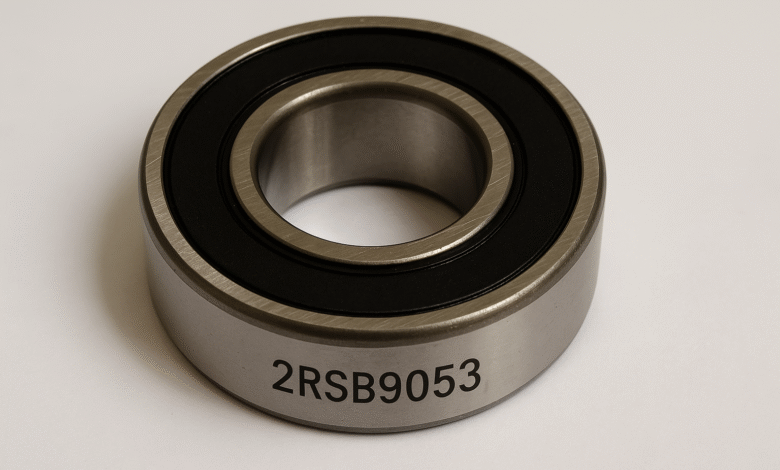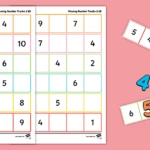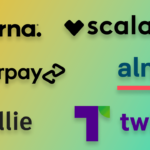Now Reading: Ehi Vuoi Da Bere: More Than Just a Drink Offer
-
01
Ehi Vuoi Da Bere: More Than Just a Drink Offer
Ehi Vuoi Da Bere: More Than Just a Drink Offer

Have you ever heard a phrase in another language and felt there was a whole world of meaning tucked inside? That’s the magic of language, where simple words can carry the weight of culture, social rituals, and connection. One such phrase from Italy is ehi vuoi da bere. While it translates directly to “hey, do you want a drink?”, its true meaning goes far deeper. It’s an invitation, a conversation starter, and a cornerstone of Italian social life.
This article will explore the rich cultural context behind the phrase ehi vuoi da bere. We’ll journey through its various uses, from casual meetups to formal gatherings, and uncover the social etiquette that surrounds it. You’ll learn not just what it means, but how and when to use it, and what to expect when someone says it to you. Understanding this simple offer is a key to unlocking a more authentic experience of Italian culture, whether you’re traveling abroad or simply connecting with Italian-speaking friends.
Key Takeaways
- Deeper Than Words: “Ehi vuoi da bere” is more than a question; it’s a social gesture that signifies friendship, hospitality, and a desire to connect.
- The Aperitivo Culture: The phrase is deeply tied to the Italian tradition of aperitivo, a pre-dinner ritual of drinks and light snacks meant to open the palate and socialize.
- Context is Everything: The meaning and appropriate response to ehi vuoi da bere can change depending on the time of day, the setting (a bar vs. a home), and your relationship with the person.
- Beyond Alcohol: While it can refer to alcoholic beverages, the offer often includes coffee, water, juice, or sodas. It’s about the act of sharing a drink, not necessarily the type of drink.
- Responding with Grace: Knowing how to accept or decline the offer politely is a crucial social skill. A simple “Sì, grazie!” (Yes, thank you!) or “No, grazie, magari un’altra volta” (No, thank you, maybe another time) works perfectly.
Understanding the Literal Translation
At its most basic level, the phrase ehi vuoi da bere breaks down quite simply. Let’s look at each word:
- Ehi: This is the Italian equivalent of “hey.” It’s an informal, friendly way to get someone’s attention. It sets a casual and relaxed tone right from the start.
- Vuoi: This is the second-person singular form of the verb “volere,” which means “to want.” It’s the informal “you,” used with friends, family, and peers. If you were speaking to an elder or someone in a formal capacity, you would use the formal “vuole.”
- Da bere: This part means “to drink.” “Da” is a preposition that can mean “from,” “by,” or “to,” and “bere” is the infinitive form of the verb “to drink.” Together, “da bere” functions as a noun phrase meaning “something to drink.”
So, when you put it all together, ehi vuoi da bere translates literally to “Hey, do you want something to drink?” It’s a straightforward question, yet it opens the door to a complex and beautiful part of Italian social interaction. It’s an offer of hospitality and a signal that someone wants to spend time with you. Understanding this nuance is the first step toward appreciating the cultural significance packed into these four simple words.
The Cultural Significance of “Ehi Vuoi Da Bere”
In Italy, offering someone a drink is rarely just about quenching thirst. It’s a fundamental social ritual woven into the fabric of daily life. The phrase ehi vuoi da bere is an invitation to pause, connect, and share a moment. This gesture of hospitality is central to Italian culture, where building and maintaining relationships is paramount. When someone extends this offer, they are welcoming you into their space, whether it’s their home, a local café, or just a shared bench in a piazza.
This concept is different from the more transactional nature of grabbing a drink in many other cultures. In the United States, for instance, asking “want a drink?” can often be a direct and quick interaction. In Italy, it’s the beginning of a shared experience. It implies a willingness to slow down, engage in conversation, and enjoy each other’s company. Accepting the offer means you are also accepting the invitation to connect on a personal level. It’s a simple act that reinforces social bonds and turns strangers into acquaintances and acquaintances into friends. This cultural underpinning is what makes ehi vuoi da bere so much more than a simple question.
The Role of Aperitivo
You cannot fully understand ehi vuoi da bere without knowing about the beloved Italian tradition of aperitivo. This pre-dinner ritual, typically taking place in the early evening between 6 PM and 9 PM, is a cornerstone of Italian social life. The concept is to have a drink—often a Campari, Aperol Spritz, or a glass of wine—to “open” the palate before dinner. However, the aperitivo is less about the drink itself and more about the social act of winding down the day with friends, family, or colleagues.
When someone asks ehi vuoi da bere during these hours, they are almost certainly inviting you to join them for aperitivo. This experience usually includes a selection of complimentary snacks, ranging from simple olives and chips to more elaborate small bites like mini pizzas, cheeses, and cured meats. It’s a moment to transition from work to leisure, to chat, laugh, and connect before heading home or to dinner. The aperitivo embodies the Italian emphasis on pleasure, community, and taking time to enjoy the simple things in life.
Different Contexts for the Offer
The meaning and expectation behind ehi vuoi da bere can shift significantly depending on the setting and time of day. Understanding these contexts will help you navigate social situations with ease and confidence.
At a Friend’s Home
If you visit a friend’s house in Italy, one of the first things you will likely hear is ehi vuoi da bere. In this context, it is a gesture of pure hospitality. Your friend is making you feel welcome and comfortable in their home. The offer is not limited to alcoholic beverages. It is just as common to be offered water (acqua, either naturale for still or frizzante for sparkling), coffee (caffè), or a soft drink.
Refusing the offer is perfectly acceptable, but it’s often polite to accept at least a glass of water. Accepting demonstrates an appreciation for their hospitality. This is a low-pressure situation focused on making a guest feel at ease. The follow-up conversation will likely be casual, centered on catching up and enjoying each other’s company in a relaxed, private setting.
At a Café or Bar
When someone says ehi vuoi da bere at a café or bar, the context changes slightly. If it’s morning or early afternoon, the offer is almost certainly for a coffee. Italy’s coffee culture is legendary, and sharing a quick caffè at the bar is a daily ritual for millions. This is often a fast-paced affair; many Italians drink their espresso standing at the counter in just a few minutes before continuing with their day.
If the offer is made in the evening, it’s likely an invitation for aperitivo or a post-dinner drink (digestivo). The person making the offer is expected to pay, though friends will often take turns on different occasions. It’s a gesture of generosity and friendship. Responding to ehi vuoi da bere in this setting means you’re agreeing to spend some quality social time together, whether for a quick chat or a longer, more relaxed conversation.
Common Drinks Offered at a Bar
|
Drink Type |
Examples |
Best Time of Day |
|---|---|---|
|
Coffee |
Espresso, Macchiato, Cappuccino |
Morning / Early Afternoon |
|
Aperitivi |
Aperol Spritz, Campari Soda, Prosecco |
Early Evening (6-9 PM) |
|
Wine |
Prosecco, Pinot Grigio, Chianti |
Evening / With Meals |
|
Beer |
Peroni, Moretti, Ichnusa |
Casual, any time |
|
Digestivi |
Amaro, Limoncello, Grappa |
After Dinner |
In a Professional Setting
The phrase ehi vuoi da bere is generally too informal for most professional environments. You would be more likely to hear the formal version, “Vuole qualcosa da bere?” (Would you like something to drink?). This might be offered at the beginning of a business meeting or when welcoming a client to an office. In this context, the offer is a professional courtesy, and the expected choices are typically non-alcoholic, such as water, coffee, or perhaps juice.
Accepting a drink is a polite way to start a business interaction. It provides a brief, informal moment to build rapport before diving into the main agenda. While the language is more formal, the underlying principle of hospitality remains. It shows respect and creates a positive, welcoming atmosphere, which can be beneficial for business relationships. For more insights on global business etiquette, resources like Forbes Planet can offer valuable perspectives.
How to Respond to “Ehi Vuoi Da Bere”
Your response to this offer is just as important as the offer itself. Whether you accept or decline, doing so gracefully is key to a smooth social interaction.
Accepting the Offer
Accepting is simple and always appreciated. A warm smile and a clear “yes” will do the trick. Here are a few ways to accept:
- Sì, grazie! (Yes, thank you!) – This is the most common and polite response.
- Volentieri! (Gladly! / With pleasure!) – This shows enthusiasm and is very friendly.
- Sì, grazie. Prendo un caffè. (Yes, thank you. I’ll have a coffee.) – This is a great way to accept and state your preference at the same time.
When you accept, be prepared to specify what you’d like. If you’re unsure, you can always ask for a recommendation by saying, “Cosa mi consigli?” (What do you recommend?). This shows you trust their judgment and are open to trying something new.
Declining the Offer
There are times when you may need to decline, and that’s perfectly fine. The key is to do so politely and perhaps provide a soft reason. Abruptly saying “no” can come across as cold or dismissive. Here are some gracious ways to decline:
- No, grazie. (No, thank you.) – Simple, polite, and effective.
- No, grazie, sono a posto così. (No, thank you, I’m fine as I am.) – This is a common and gentle way to refuse.
- Magari un’altra volta, grazie. (Maybe another time, thank you.) – This softens the refusal and leaves the door open for future invitations.
- Ho appena bevuto, grazie lo stesso. (I just drank, thanks anyway.) – This provides a simple reason without being overly detailed.
Remember to always add a “grazie” (thank you) to acknowledge the kindness of the offer, even when you are declining.
Common Misunderstandings for Foreigners
For those unfamiliar with Italian culture, the simple offer of ehi vuoi da bere can lead to some confusion. One common misunderstanding is assuming the offer is exclusively for an alcoholic drink. While it certainly can be, especially in the evening, it’s an all-encompassing offer for any beverage. Don’t hesitate to ask for water, juice, or a soda if that’s what you prefer. The social ritual is about sharing a drink, not about consuming alcohol.
Another point of confusion can be the etiquette of payment. In many Western cultures, it’s common to split the bill or “go Dutch.” In Italy, the person who makes the invitation, ehi vuoi da bere, is generally expected to pay. Insisting on paying your share can sometimes be seen as rejecting their gesture of generosity. A better approach is to accept graciously and then make sure you return the favor on a future occasion by saying, “La prossima volta offro io!” (Next time it’s on me!). This reciprocal approach is a cornerstone of Italian social dynamics and strengthens friendships over time.
Conclusion: An Invitation to Connect
The phrase ehi vuoi da bere is a perfect example of how language is a window into culture. On the surface, it’s a simple, four-word question: “Hey, want a drink?” But underneath, it is a gesture rich with the values of hospitality, community, and the joy of shared moments that define Italian life. It’s an invitation to pause your day, to engage in conversation, and to strengthen the bonds of friendship.
Whether you’re exploring the charming streets of Rome, visiting an Italian friend’s home, or simply interacting with Italian speakers in your own community, understanding the weight of this offer will enrich your experience. It empowers you to respond with grace and to appreciate the warmth and generosity behind it. So, the next time you hear ehi vuoi da bere, know that you’re not just being offered a beverage; you’re being offered a connection. And accepting it—with a simple “Sì, grazie!”—can be the start of a beautiful interaction.
Frequently Asked Questions (FAQ)
Q1: Is “ehi vuoi da bere” a formal or informal phrase?
A1: It is very informal. The use of “ehi” (hey) and “vuoi” (the informal ‘you want’) makes it suitable for friends, family, and peers. In a formal situation, you would use “Vuole qualcosa da bere?”
Q2: Does “ehi vuoi da bere” always mean an alcoholic drink?
A2: No, not at all. The offer is for any kind of beverage. It could be for a coffee in the morning, a glass of water in someone’s home, or a soda at a café. The type of drink depends entirely on the context and time of day.
Q3: Who pays when someone says “ehi vuoi da bere”?
A3: Generally, the person who makes the offer is expected to pay. It is considered a gesture of generosity. Trying to split the bill can sometimes be seen as impolite. The best practice is to accept and then reciprocate by treating them on another occasion.
Q4: What is the best way to respond if I want to accept?
A4: A simple and enthusiastic “Sì, grazie!” (Yes, thank you!) or “Volentieri!” (Gladly!) is a perfect response. Be ready to tell them what you would like to drink.
Q5: How can I politely decline the offer?
A5: You can politely decline by saying “No, grazie, sono a posto” (No, thank you, I’m fine) or “Magari un’altra volta, grazie” (Maybe another time, thank you). Always remember to thank the person for the offer.















